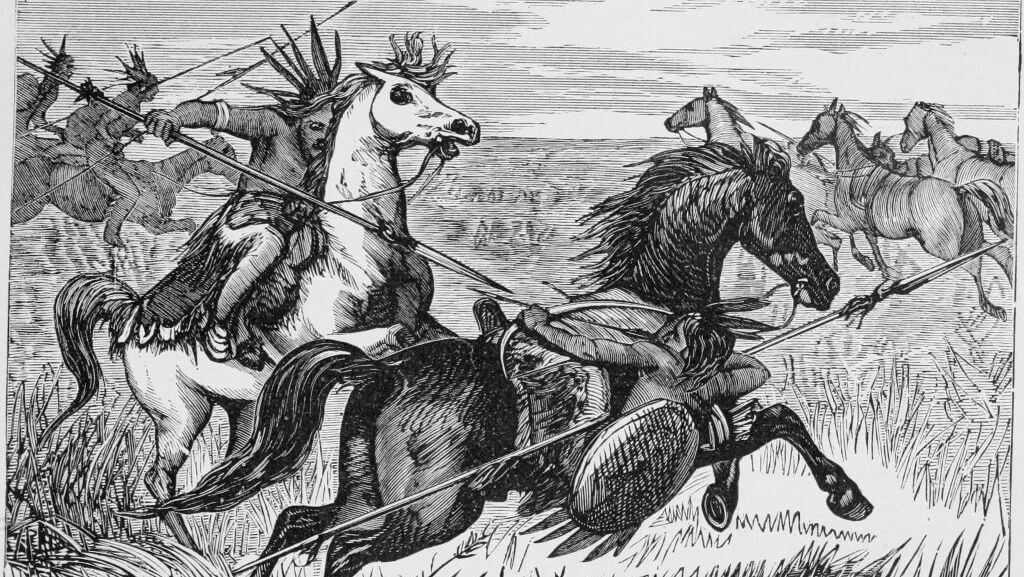This Monday is the federal holiday called “Columbus Day” to honor a man who was once lauded as a great mariner and courageous explorer, whose exploits led to the European discovery of the Americas.
But in recent decades, Columbus has been demonized and accused of all manner of atrocities against the indigenous peoples of the Americas.
The attacks on Columbus are part of the broader denigration of Western Civilization as racist, exploitative, and imperialistic. A major source of the assault on both Columbus and Western Civilization is a widely used history textbook by the late Howard Zinn, A Peoples’ History of the United States. Zinn was more of a Marxist polemicist than a legitimate scholar, and the book has been panned, even by left-wing historians who express concern about the damage that politicized history could do to their profession.
As Mary Grabar has pointed out in her scathing critique of Zinn, his chapter on Columbus was plagiarized from Columbus: His Enterprise: Exploding the Myth, a book for high schoolers, first published in 1976 by Hans Koning. As she and others, including Robert Royal and Armando Simon, observe, contemporary accounts contradict the portrait of Columbus painted by the likes of Koning and Zinn. He, like most men, was imperfect but far from the moral monster described by these modern leftist writers.
As noted above, the attack on Columbus mirrors the broader assault on the United States, which portrays America as irredeemably racist and the indigenous peoples of the Americas as innocent victims of Western crimes, in particular, genocide. Indoctrinated by the likes of Zinn, the pushers of “1619 Project,” and their ilk, many young people believe that slavery was invented by the United States. Of course, when the United States declared its independence in 1776, slavery was a world-wide phenomenon. African states, such as the Kingdom of Dahomey and the Ashanti Empire of Western Africa were slaveholders themselves and sold other Africans into the Atlantic slave trade. Although the Declaration of Independence did not end slavery at once, it made the abolition of slavery a moral and political imperative.

The flip side of the denigration of Columbus and the United States is the claim that the native peoples of America were peaceful and innocent victims of white greed and violence. The fact is that the Indians did the same things to other Indians the white man is accused of having done to the Indians.
They fought over land and hunting grounds. They fought over trade with the British and the French. The Iroquois, who allied themselves with the British during the colonial period, fought a war of extermination against the Huron, who allied themselves with the French. For accounts of the interactions of the Europeans, Americans, and the various Indian tribes, read Francis Parkman and James Axtell.
Atrocities by one tribe against another were a matter of course. Many of the tribes practiced ritual torture. An observer provided an account of Iroquois warriors burning Huron captives. As the flames consumed them, the Huron sang a song. “It was a very sad song,” the observer noted.
We rightly condemn the forcible removal of the Cherokee from the American Southeast. But the Cherokee were in the Southeast because they had been driven there earlier by the Sioux. The Black Hills became “sacred” to the Lakota only after they had driven earlier tribes away.
As two fine books, Comanche Empire and Empire of the Summer Moon, illustrate, the Comanche were major geopolitical players in North America, helping to shape the policies of first Spain, then Mexico and the United States. Indeed, the main reason that Spain and Mexico invited Anglo settlers into Texas was to provide a buffer against Comanche raids into Mexico.
To point out the behavior of the Indians is not to excuse any crimes and atrocities committed against them by whites but to place those actions in historical context. As I have argued before, it is only because of the principles enshrined in the Declaration of Independence that we can criticize the actions of our forebears. Before that, the rule of conduct for both domestic and foreign policy was described by Thucydides in the response of the Athenians to a plea for mercy and justice by the Melians: “Justice applies only to equals. As for the rest, the strong do what they will. The weak suffer what they must.”
